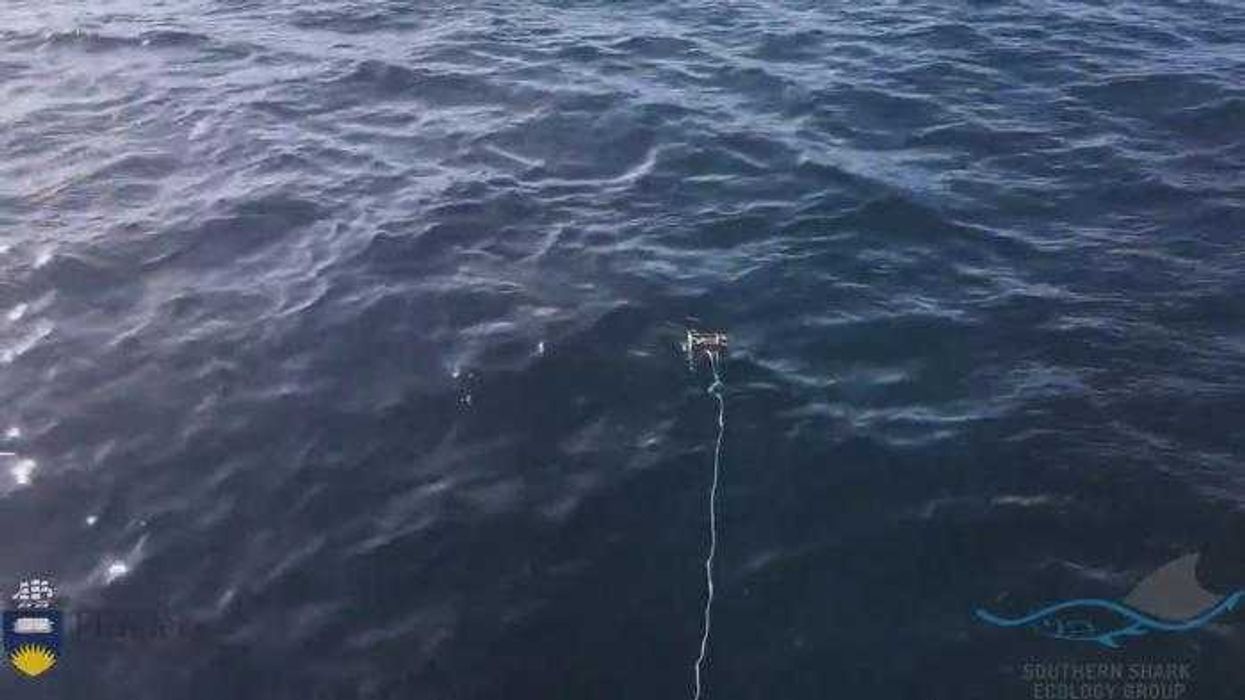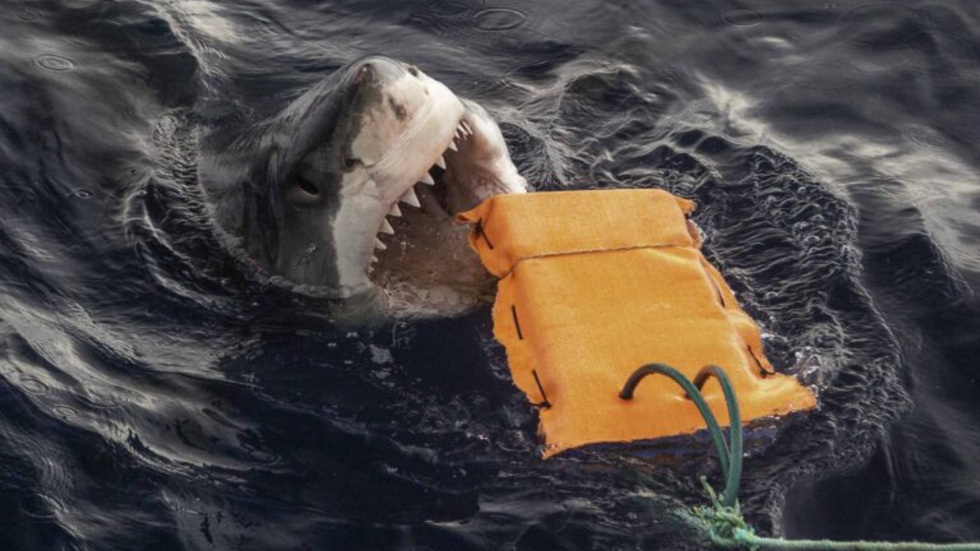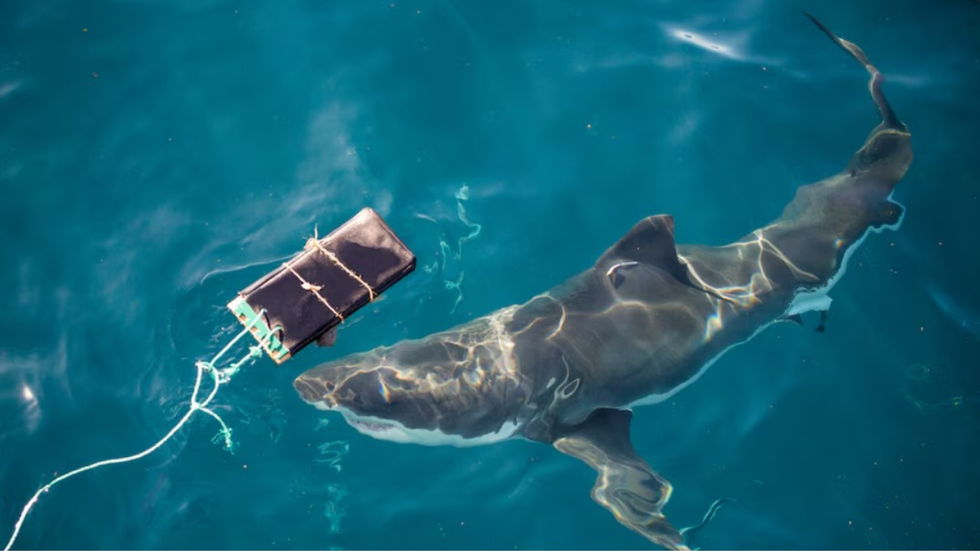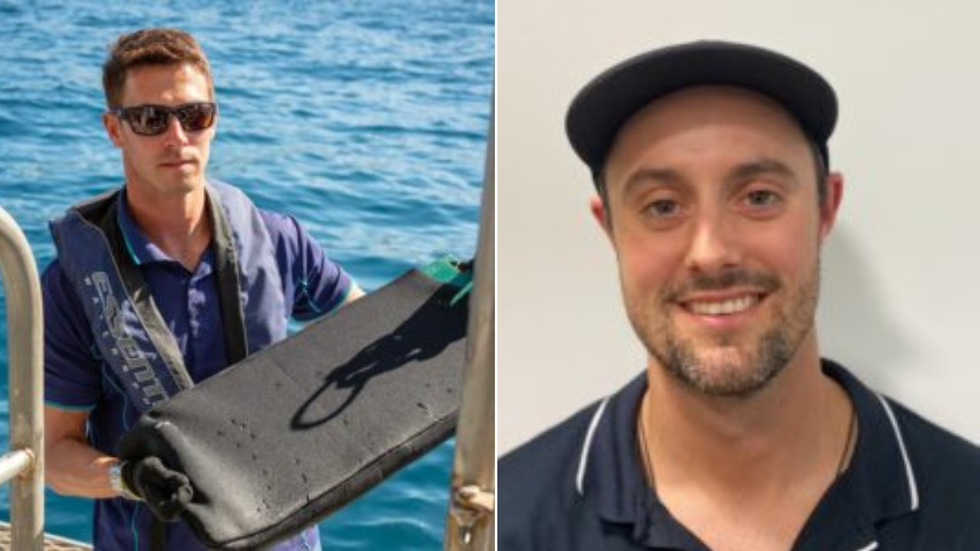Scientists unveil SHARK-PROOF wetsuit made of sailing rope - which they say could save lives

WATCH: Footage from Flinders University of a 'shark-proof' wetsuit test being carried out |
GB NEWS
It is thought the wetsuits will significantly reduce blood loss after a shark attack
Don't Miss
Most Read
A shark-proof wetsuit made of sailing rope has been unveiled by Australian shark experts - who say it could save lives.
Four bite-resistant materials were tested by a team from Flinders University's Southern Shark Ecology Group to discover which could reduce injuries and blood loss.
Although the bite-resistant wetsuits were not able to stop internal and crushing injuries, researchers believe they would be a valuable addition to the "toolkit" of measures available to reduce shark-bite risk and resulting injuries.
Despite shark bites on humans being rare, incidents can have huge impacts on coastal communities and businesses, especially those relying on water-based tourism.
TRENDING
Stories
Videos
Your Say
While governments have traditionally focused on area-based protection like beach-spanning shark nets, recent studies have shown there is an increasing focus on personal deterrents.
The study tested the efficacy of four bite-resistant wetsuit materials in reducing the damage incurred from white and tiger shark bites.
The materials were Aqua Armour, Shark Stop, Action TX-S and Brewster.
Although traditional chainmail suits were found to be protective, they were too heavy and inflexible to be used for activities such as surfing and diving.
Instead, wetsuits which incorporate strong and light fibres often used in sailing rope were found to be more suitable for recreational use.

The wetsuit material being tested was wrapped around a board padded with foam
|FLINDERS UNIVERSITY
The damage from 84 white shark bites and 68 tiger shark bites was tested, and then categorised by severity - superficial, slight, substantial or critical.
Dr Tom Clarke, from the College of Science and Engineering at Flinders University, said: "While there were small differences between the four tested materials, they all reduced the amount of substantial and critical damage, which would typically be associated with severe haemorrhaging and tissue or limb loss."
White and tiger sharks are two of the top three species with the highest rate of fatal bites - and are responsible for the most unprovoked attacks.
Expanding coastal populations and increased marine activities mean sharks and humans are coming into contact more frequently.
ANIMALS - READ MORE:

Locally-sourced bait was thrown into the water to attract the sharks
|FLINDERS UNIVERSITY
All tests were carried out in the wild, with white sharks in South Australia's Spencer Gulf and tiger sharks off Norfolk Island in Queensland.
Locally-sourced bait was thrown into the water to attract the sharks, before being replaced with a "bite package" which was tied to the boat.
The wetsuit material being tested was wrapped around a board padded with foam - ethylene and vinyl acetate - which is used in surgical training to resemble the density and texture of human tissue and flesh.
Dr Clarke added: "Our study showed that bite-resistant materials incorporated into wetsuits can reduce damage from large white and tiger sharks (up to three metres) compared to standard neoprene wetsuits, even from moderate and severe bites."

Professor Charlie Huveneers (left) and Dr Tom Clarke (right) worked on the study
|FLINDERS UNIVERSITY
Professor Charlie Huveneers, the leader of the Southern Shark Ecology Group, said: "While these suits don't eliminate all the risk, our results indicate that they can reduce blood loss and trauma from major lacerations and punctures, potentially saving lives.
"Our findings will allow for informed decisions to be made about the use of bite-resistant wetsuit materials for occupational activities, as well as enabling the public to make appropriate decisions about the suitability of using these products."










